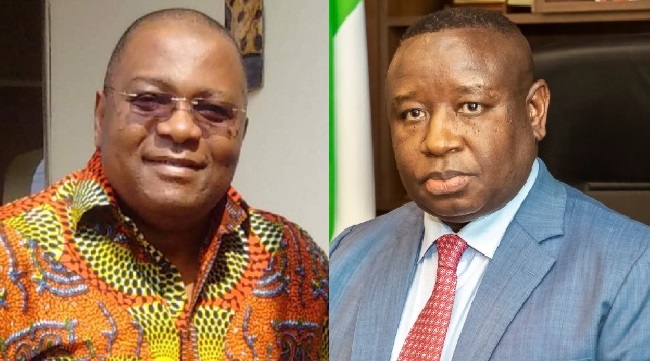Prof. Sankoh, commonly known as Mallam O, who is also the CEO of Statistics Sierra Leone (Stats SL), was elected unanimously, according to a news release from the Communication and PR Directorate of Stats SL.
The UN Statistical Commission, established in 1947, is the highest body of the global statistical system which brings together Chief Statisticians from all member states. The body is the highest decision-making organ for international statistical activities, responsible for setting of statistical standards and the development of concepts and methods, including their implementation at the national and international level.
The Commission also oversees the work of the United Nations Statistics Division (UNSD) based in New York and it is a Functional Commission of the UN Economic and Social Council.
Prof. Sankoh’s election follows his official nomination recently by the Sierra Leone Government through its Permanent Mission to the UN in New York.
Working at the highest level of the UN Statistical Commission is not new to Mallam O, who was first elected in March 2020 as the Rapporteur of the Commission during its 51st Session. The Sierra Leonean Statistician General was re-elected in March 2021 for a second term as Rapporteur, a moved seen as indicating his excellent performance in his first term.
Prof. Sankoh will serve in the Commission with world renowned statisticians like Ms. Gabriella Vukovich of Hungary who was elected Chairperson.
Sankoh’s position is one of three co-vice chairs. The others are Mr. Juan Daniel Oviedo of Columbia Mr. Georges-Simon Ulrich of Switzerland.
The new Rapporteur of the Commission is Mr. RYU Keunkwan of South Korea.
Prof. Sankoh was appointed Statistician General and CEO of Statistics Sierra Leone in April 2018. Under his leadership the institution has seen remarkable transformation, attracting diverse national and international partners and donors, including the World Bank which is funding Stats SL with a US$30m grant for the period 2019 to 2024.
Sankoh is also the Chief Census Officer of the first ever digital census and first mid-term census in Sierra Leone, which entailed the use of satellite imagery for the first digital cartographic mapping of the country.
While serving as Statistician General, Sankoh also briefly served as Acting Vice Chancellor and Principal of Njala University, the second largest public university in Sierra Leone, from April 2020 to June 2021.
Until joining Stats SL, Prof Sankoh was for a decade the Executive Director of the INDEPTH Network.
With headquarters in Accra, Ghana, INDEPTH Network is an international organization working on the demographic evaluation of populations and their health in 20 low- and middle-income countries in Africa, Asia and the Pacific.
At INDEPTH, Sankoh was credited for raising and managing hundreds of millions of US dollars of research grants for the institution.
Since his return home, he has been awarded several national awards, including the *Commander of the Order of the Rokel by President Julius Maada Bio in 2021.
Besides being a top scientist, Prof. Sankoh is also a poet, author of both technical and literary books, and he has more than 120 scientific papers in peer-reviewed international journals.
Sankoh. Described as “unassuming, respectful and down-to-earth”, was born in a little village called Warima, near Masiaka, where he had his primary school education. After secondary education at the Tomlinson High School in Songo, he pursued his first degree in Mathematics and English at Njala University College, which was then part of the University of Sierra Leone. His postgraduate studies in Statistics were pursued at the Technical University of Dortmund in Germany, ending with a Doctor of Science degree. Thereafter he secured a scientific position at the University of Heidelberg Medical School in Germany where he still maintains a relationship as a Visiting Professor in the area of the nexus between climate change and human health.
Sankoh currently holds a honorary position as a full professor on the Faculty of Health Sciences in the School of Public Health at one of Africa’s topmost universities, University of Witwatersrand in Johannesburg, South Africa, where he has supervised masters, doctoral and postdoctoral students.




 Post a comment
Post a comment









